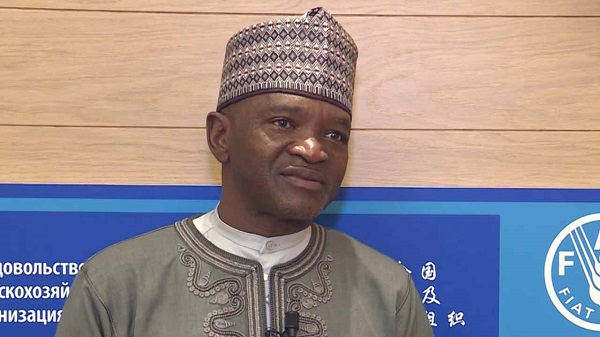
The Minister of Environment, Dr. Mohammad Abubakar, has given the rationale behind the nation’s increase of its target in the new Nationally Determined Contributions to mitigate negative effects of climate change.
Speaking to journalists on the recent developments within the environment sector in Abuja, he explained that the updated NDC with an unconditional contribution of 20 per cent below business-as-usual by 2030 and 47 per cent conditional contribution on international support offered Nigeria the opportunity to follow the path of low carbon development, which would in turn facilitate an equitable and sustainable development for the country.
Recall that Nigeria joined other 196 countries to sign the Paris Agreement in 2015. The adoption of the Paris Agreement in 2015 and its ratification in 2017, made it binding on Nigeria to work towards meeting its 20 per cent unconditional commitment by 2030 and 45 per cent conditional commitment with international support below business-as-usual.
Nigeria submitted its final and updated Revised Nationally Determined Contributions of the Paris Agreement on Climate Change with the approval of President Muhammadu Buhari to the UN Framework Convention on Climate Change on July 30, 2021. This has now replaced the interim updated NDC that was submitted on the May 27, 2021.
Abubakar said Nigeria had raised its ambition in the updated NDC by including emission reduction from the waste sector, for the first time, and increasing its conditional contribution by 2 per cent.
According to him, Nigeria is taking these ambitious pledges carefully also in consideration of low economic growth and the myriad of challenges attributable to the COVID 19 pandemic.
“This demonstrates our commitment to play the leading role on sustainable development in Africa. The vision of our NDC is fully aligned with the Sendai Framework on Disaster Risk Reduction, Sustainable Development Goals (SDGs) and Nigeria Economic Sustainability Plan
“We are focusing on a sustainable and climate smart economic diversification with green job development along the value chains for our teaming youth, a just energy transition and access to electricity for all Nigerians, provision of a healthy environment by the national decarbonization of all the NDC sectors towards a net-zero trajectory. This includes electric mobility, clean cooking energy systems, energy efficient building and infrastructure, and importantly, mainstreaming circular economy in all strata of national production and consumption while prioritizing gender issues,” he added.


